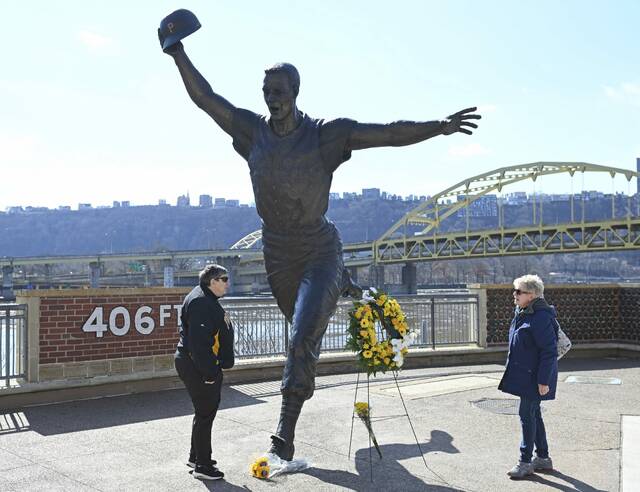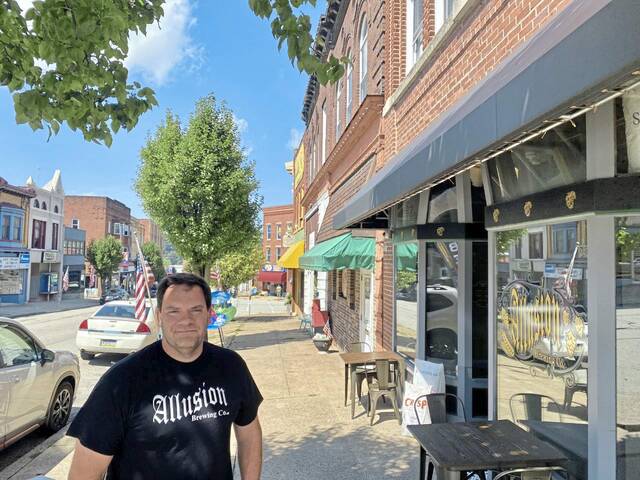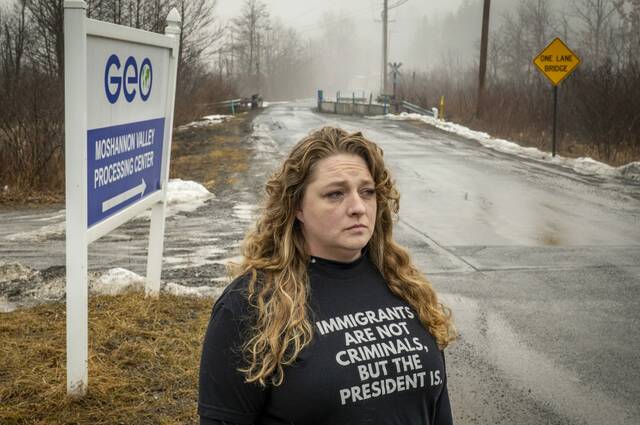In years past, Pittsburgh scheduled public works employees for overtime if snow was forecast overnight or on weekends.
Road-clearing crews would sometimes spend an entire shift waiting for snow that wouldn’t fall until morning — and getting paid for it.
No longer. Now, workers are assigned to be on call on weekends and overnight and are paid only if they’re deployed.
“It means that we’re only actually paying the overtime rates when we need to,” Jake Pawlak, the city’s director of the Office of Management and Budget, said Friday.
The change is part of a budget-cutting strategy that Pittsburgh officials have rolled out to curb soaring overtime costs that busted the budget last year.
Public works, for instance, spent $2.2 million more than projected on overtime, according to a year-end tally by City Controller Rachael Heisler. Premium pay cost the fire bureau $2.5 million more than budgeted. And police overtime went nearly $2.8 million over the $17 million projected.
Pawlak and Mayor Ed Gainey presented a conservative 2025 budget that some observers believe grossly underestimates overtime — and Heisler’s report puts those concerns into stark contrast.
“There are substantial gaps in the budget allocations for premium pay, and our 2024 report proves that,” Heisler said in a statement last week.
If those trends continue, Heisler has repeatedly warned, the city would again spend more than the budget calls for this year.
In an email to City Council members in December, she warned of a $12 million to $15 million shortfall if the city continues to spend as much on overtime as it did last year.
“Without proactive adjustments, the City risks depleting its reserves or shifting funds from other priority areas,” she wrote.
This comes as Heisler is warning of looming fiscal troubles as the city faces declining revenues, the end of federal covid-19 relief funds and slim financial margins in the years ahead.
But Gainey’s top budget experts said new protocols are in place to rein in that overtime spending.
In addition to the on-call system for the Department of Public Works, Pittsburgh Emergency Medical Services wants to shift from paying paramedics overtime to more efficiently using EMTs, who are paid at a lower rate, said Patrick Cornell, the city’s chief financial officer.
In 2024, the EMS bureau spent nearly double its $3.6 million overtime budget.
The city is short-staffed on paramedics, but not EMTs, who have less training and provide more limited care.
In the past, an EMT couldn’t ride alongside a paramedic to replace another paramedic for a shift. So officials would have to call in more paramedics and pay them overtime.
Now, the city is launching what officials call “combo units” — ambulances staffed with one paramedic and one EMT. That allows the bureau to more efficiently use the paramedics and rely on EMTs to fill in gaps, rather than paying paramedics for extra shifts, Cornell said.
“We do expect that to really help ensure that coverage is maintained without as many people being called to overtime,” he said Friday.
Cornell said the city is hoping to adjust staffing levels in its fire and police bureaus to help address overtime there. The city is working to bring on more new police recruits, but the bureau is understaffed, forcing officers to work extra hours.
Officials have voiced concerns police staffing is continuing to slip in the wrong direction, as 103 officers left the force last year.
Gainey in recent years has lowered the number of budgeted officers to 800 from 900, though actual staffing levels have remained below 800.
Councilman Bob Charland, D-South Side, said he worries any efforts to reduce the amount of police overtime could impact public safety, particularly in areas like the East Carson Street entertainment district, where extra patrols have helped tamp down violent crime.
Charland saw the city’s inability to work within its overtime budget last year as a sign of trouble ahead.
“It is further evidence that the administration proposed a budget they were not confident they’d be able to maintain,” Charland said.








